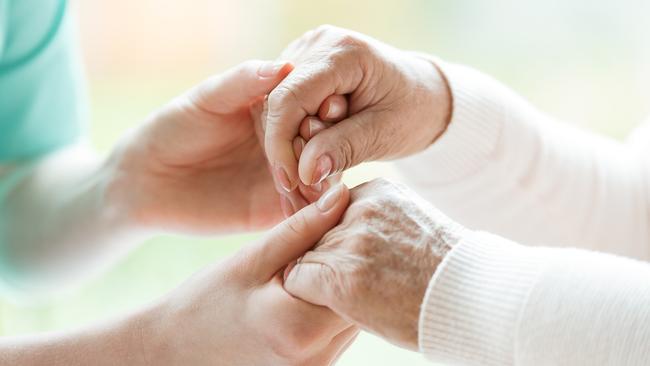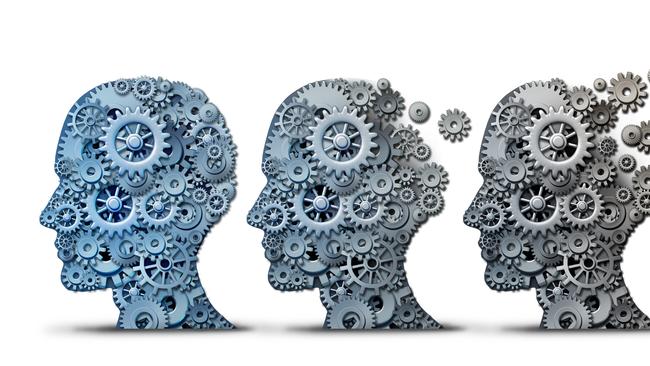First evidence of Alzheimer’s being transmitted between humans sparks emergency investigation
Health experts are convening an urgent meeting after a new study found Alzheimer’s disease can transmit between humans.
Illness
Don't miss out on the headlines from Illness. Followed categories will be added to My News.
Health experts will launch an urgent investigation after new evidence that Alzheimer’s can spread between people.
A groundbreaking UK study published on Monday found a group of children who received human growth hormone from deceased donors developed early-onset Alzheimer’s disease.
About 8000 children are believed to have been injected with the therapy between the 1960s and 1980s sparking fears cases may have gone undetected.
In a statement, a spokeswoman for the National Institutes of Health (NIH) said: “Given this new information, the committee will convene to discuss the issue and re-analyze data for any possible associations with Alzheimer’s or dementia-related conditions.”
The meeting of the Public Health Service Interagency Coordinating Committee on Human Growth Hormone and Creutzfeldt-Jakob Disease is expected to take place in February.
The team at University College London had been studying eight cases of British children who underwent the medical treatment, before the practice was banned in the 1980s.

Researchers found five of the patients who had received the growth hormone received in their childhood may have contained amyloid-beta protein plaques, which build up in the brains of people with Alzheimer’s disease over time.
Five of the eight people went on to develop early-onset Alzheimer’s disease, defined as onset of symptoms between the age of 38 and 55, the researchers found.
These people had dementia symptoms severe enough to impair their daily living.
“We’re not suggesting for a moment you can catch Alzheimer’s disease. This is not transmissible in the sense of a viral or bacterial infection,” co-author of the study Professor John Collinge said.
“It’s only when people have been accidentally inoculated, essentially, with human tissue or extracts of human tissue containing these seeds, which thankfully is a very rare and unusual circumstance.”
The findings, published in the journal Nature Medicine, stress that there is no evidence Alzheimer’s can be passed between people through everyday activities or routine care.

Between 1959 and 1985, around 1848 British children with growth issues were treated with human growth hormone that was extracted from the pituitary glands of cadavers.
However, doctors put a halt to the practice worldwide when it came to light that these procedures could transmit a type of misfolded protein called a prion, which in turn could trigger a deadly degenerative brain disorder called Creutzfeldt – Jakob disease (CJD).
When seen in animals, the illness is nicknamed “mad cow disease.”
Autopsies conducted by Professor Collinge’s team showed that some patients who had died of CJD in this way also showed signs of Alzheimer’s amyloid-beta build-up.
“These findings do, however, provide potentially valuable insights into disease mechanisms,” Prof. Collinge said.
“The findings pave the way for further research which we hope will further our understanding of the causes of more typical, late onset Alzheimer’s disease.”
“The recognition of transmission of amyloid-beta pathology in these rare situations should lead us to review measures to prevent accidental transmission via other medical or surgical procedures, in order to prevent such cases occurring in future.“




